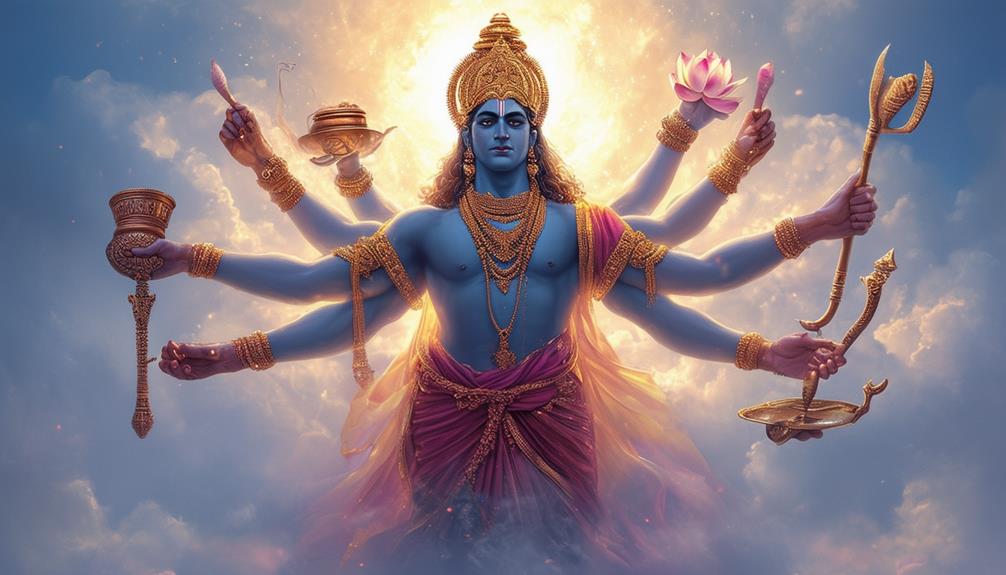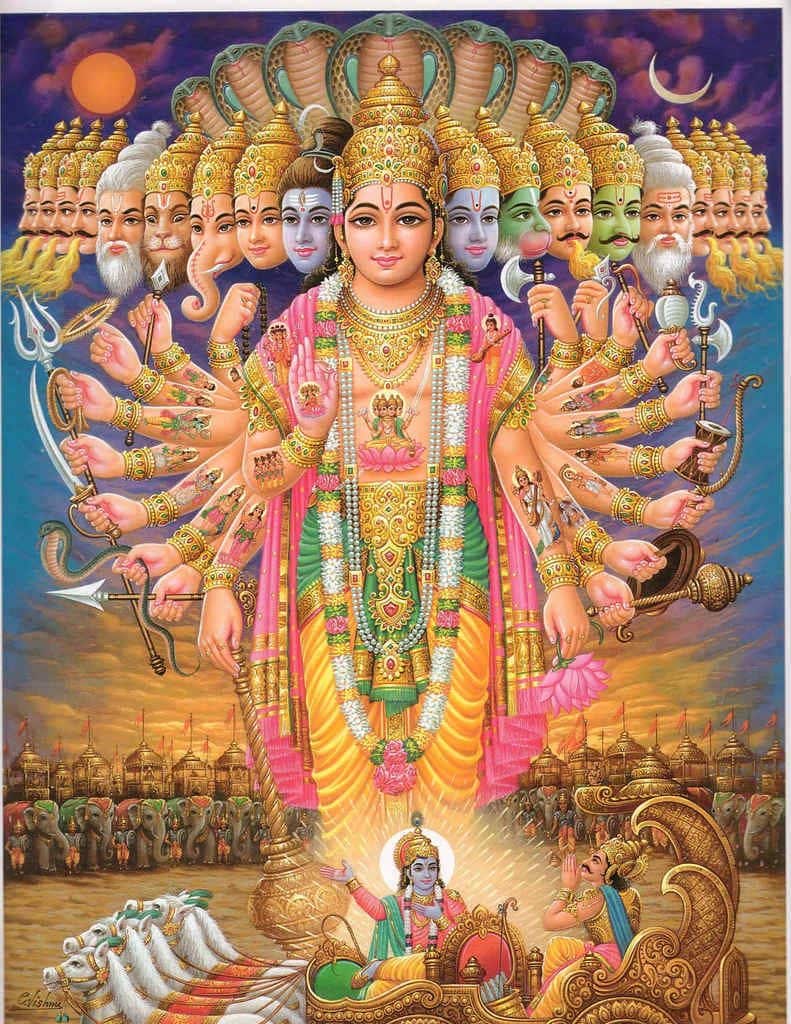Why Do Hindu Gods Have Multiple Arms: Mystical Symbolism
Have you ever gazed at a statue or painting of a Hindu god and wondered why they have multiple arms? This intriguing aspect of Hindu iconography isn’t just about aesthetics; it’s a window into deeper symbolism and cultural beliefs.
You might find yourself curious about what these extra arms signify and how they relate to the stories and powers of these deities. With each arm, a god gains a unique ability, a special attribute that can inspire and teach you about resilience, strength, and wisdom.
Dive into this fascinating topic and uncover the secrets behind these captivating figures. Understanding this symbolism might not only satisfy your curiosity but also provide insights that could enrich your life. Keep reading to discover why these gods are depicted with multiple arms and what it means for you.

Credit: www.ramana-maharshi.org
Origins Of Hindu Deities
Hindu gods are very old. Their stories are in ancient texts. These stories are from thousands of years ago. Hinduism is one of the oldest religions. It has many gods and goddesses. Each god has special powers. They can do many things at once. Multiple arms show their many powers.
Icons are pictures of gods. They have changed over time. Early icons were simple. Later, they became more detailed. Artists added more arms to show power. Many arms mean many abilities. These images help people understand the gods better. They make the gods look strong and wise.

Credit: archive.asia.si.edu
Symbolism Of Multiple Arms
Hindu gods often have many arms. This shows their great power. Each arm can hold a different weapon or tool. These items show their strength and abilities. Gods use their extra arms to protect their followers. Some arms fight evil. Others bless the faithful. Their arms are never idle. Each arm has a purpose. These arms make them mighty. They can do many things at once. With more arms, they are never weak.
Multiple arms show a god’s ability to do many actions. One arm might bless. Another arm might fight. Each arm shows a different role. They can create, destroy, or protect. Each action is important. Gods use their arms wisely. Their arms tell stories. They show how gods care for the world. They are always working. Their actions are helpful and meaningful.
Cultural Significance
Hindu gods with multiple arms are a common sight in art. Artists show their powers and strength through these extra arms. Paintings and sculptures often depict gods holding weapons or symbols. This creates an image of a powerful being. Literature also uses gods with many arms to tell stories. Authors write about their battles and adventures. These tales inspire readers and teach moral lessons. Gods with extra limbs symbolize their ability to do many things at once. This makes them unique and important figures in culture.
Worshippers see gods with multiple arms as strong protectors. They pray to them for help and guidance. The arms show the god’s power to protect and bless followers. During festivals, statues of these gods are decorated and shown to the public. People gather to offer flowers and food. Rituals often include songs and dances honoring these gods. The extra arms symbolize their ability to handle many tasks and responsibilities. This makes them vital in religious ceremonies and daily prayers.

Credit: www.vedicfutura.com
Interpretations Across Regions
In Northern India, gods with many arms show their power. Each arm holds a special item. These items have deep meanings. They tell stories of strength and wisdom. People believe gods protect them with all these arms. The more arms, the greater their power.
In Southern India, many arms mean the god can do more things. Each arm is doing a different task. This shows the god’s ability to help everyone. People feel safe with gods that can do many things at once. Gods with many arms are like heroes for them.
Modern Understanding
Hindu gods often have multiple arms to symbolize their immense power and ability to perform many tasks at once. Each arm holds a different object, representing the god’s unique skills and responsibilities. This imagery helps convey complex spiritual concepts in a simple, visual manner.
Contemporary Views
Hindu Gods often have many arms. This shows their supernatural powers. People see them as strong and capable. Each arm holds a different item. These items have special meanings. They teach us about virtues and lessons. Many arms show how they can do many tasks. Gods can help in many ways. They protect and guide people.
Some think these stories are symbolic. They show ideas and beliefs. Others see them as a way to explain mysteries. Many find comfort in these stories. They give hope and inspiration.
Impact On Global Perception
Many around the world learn about Hindu Gods. They are curious about the multiple arms. It sparks interest in culture and traditions. Some see it as a rich heritage. Others find it unique and interesting. People share stories and art. This spreads awareness and understanding.
Art and media show these gods. They appear in books and films. This helps people learn. It bridges cultural gaps. More people appreciate these myths. They see them as a window to a vibrant culture.
Conclusion
Hindu gods with multiple arms symbolize divine power and capabilities. Each arm holds a tool or weapon, representing specific attributes or duties. This visual depiction helps believers understand complex divine roles. The extra arms also signify the gods’ ability to perform many tasks simultaneously.
This concept inspires faith and reverence among followers. It reflects the rich symbolism in Hindu mythology. Such imagery offers deep insight into spiritual beliefs. Understanding these symbols enriches our knowledge of Hindu traditions. They illustrate how mythology connects with human experiences and aspirations.
Exploring these stories fosters cultural appreciation and spiritual growth.

